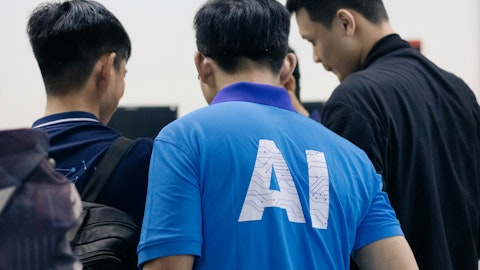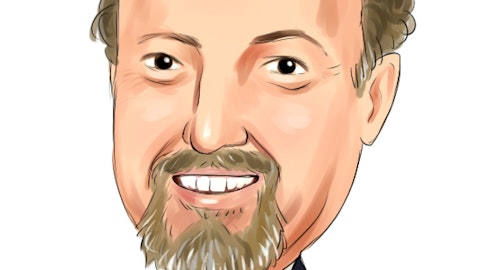James Lee: Yeah. Thanks for taking my question. Two here on Delivery. Can you guys give us an update on maybe the European economy regulation, maybe what policy we should pay attention to, and how should we think about implication of labor costs? And maybe on the U.S. side, can we get a sense of the impact of minimum wage in Seattle and New York on GP and EBITDA and how do you guys plan to mitigate impact going forward? Thanks.
Dara Khosrowshahi: Yeah. As far as the EU platform work directive, lawmakers essentially voted to maintain a status quo there, with platform worker status continuing to be decided on a country-by-country basis. Member states have until mid-2026 to implement that. And we think that the deal is really unlikely to bring major changes to the current situation in the vast majority of EU countries. And for us, our view remains the same, which is, we believe that we should bring kind of the flexibility that [indiscernible] brings to couriers, to drivers in the marketplace, along with certain protections that we kind of talk to and have discussions with on a local basis. So we really don’t see any changes coming in terms of the EU. In terms of the Seattle and New York, I think some of the regulation that we’ve seen has actually been very unpopular with couriers, restaurants and customers.
So for example, we saw in Seattle, which is a relatively small market, we saw Delivery order volumes decreasing by 45%, which has resulted in courier wait time actually increasing 50% on a year-on-year basis. So couriers may be making more per order, but they’re getting a lot less orders, which has resulted in 30% of active couriers actually leaving the platform, which I think is certainly not what the city council had in mind. So we’re actually seeing the city council in Seattle, for example, bring reform in Seattle to make the standard lower and much more viable for the platforms. We’re not there yet. But there’s a vote coming up in — I think it’s actually tomorrow, and we think we’ll have a positive outcome there. And it’s important that it’s a positive outcome for couriers and restaurants and customers, because certainly, the Seattle — the regulation that has been in place in Seattle has clearly been poor regulation that has hurt the people that they’re supposed to protect.
We’ll see what happens in New York City. Unfortunately, again, in New York City, we have had to essentially slot couriers, and we’ve got a waitlist of over 20,000 carriers who want to be on the platform. But because of that regulation, we’ve had to reduce the number of couriers on the platform by close to 25%, so the standard when in place. So less people get to earn in New York, we don’t think that’s a good thing. Now again, we have been able to absorb the financial hit of all these different regulations in our platform. You’ve seen in our profitability, which is up over 80% in Uber Eats on a year-on-year basis. So we’re a big company. We have a lot of markets. We’re quite diversified. Our technology continues to drive a more effective marketplace that allows us to absorb these regulations.
But I think couriers in New York City who want to work, couriers in Seattle who want to work, they’re getting hit hard by these regulations, and we’re hoping that kind of regulators see the right path going forward because, so far, regulation has definitely hurt the people that it’s supposed to protect.
Prashanth Mahendra-Rajah: Okay. Before Dara wraps it up, I wanted to remind everyone next week is our annual Uber GO/GET. This is our event which showcases new products and features across both the Mobility and Delivery. Obviously, we’re not going to get ahead of the announcements, but our theme is togetherness. And in addition to the product piece, we’ve got a great fireside chat with Dara and Maria Shriver (ph). This will be in New York. So if any of you are looking to get out of the office, please reach out to Deepa and we can see what space we have. If you do join us, my only request is you travel by Uber. And with that, let me have Dara wrap it up.
Dara Khosrowshahi: I like it. My CFO is upselling and thank you, everyone, for joining us on the call, and a huge thank you for the Uber teams. There’s a ton of work that goes into all of the new products that we’re launching into the products that we’ll be talking about and GO/Get, and into delivering the kind of growth and profitability that we’ve seen from Uber over the past couple of years. So a big thank you for the team for continuing to deliver this quarter.
Prashanth Mahendra-Rajah: Thanks, everyone. Talk to you next quarter.
Operator: This concludes today’s conference call. Thank you for joining. You may now disconnect your lines.
Follow Uber Technologies Inc (NYSE:UBER)
Follow Uber Technologies Inc (NYSE:UBER)
Receive real-time insider trading and news alerts





